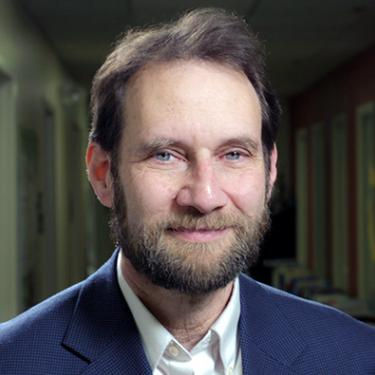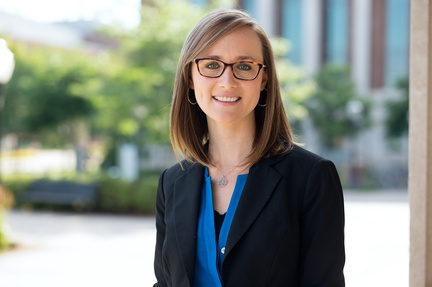Course Correct: New Integrative Nursing Specialization Launches on Coursera
- Katie Dohman
- Jan 13, 2021
- 6 min read
Updated: Jan 21, 2021
Following the success of the Bakken Center for Spirituality & Healing’s first specialization, which focused on Integrative Health and Medicine, it became clear – an additional specialization in Integrative Nursing was critical. Faculty with specializations in nursing, midwifery, aromatherapy, guided imagery, and mindfulness, were tapped to create a new online, asynchronous, four-week curriculum for deployment on Coursera.

Dr. Mary Jo Kreitzer, director of the Bakken Center and professor in the University’s School of Nursing, says that since the textbook Integrative Nursing, co-edited with Dr. Mary Koithan, was published—first in 2014, followed by a second edition in 2018—“nurses around the world have been drawn to practice in this way—a whole-person approach to care that includes the use of integrative therapies and healing practices.” The Bakken Center has also hosted three international Integrative Nursing symposia.
It all indicated a hunger for the information outside of a traditional degree-seeking program. “The Introduction to Integrative Nursing course offers an introduction to the principles and concepts of integrative nursing, along with extensive ideas on how to implement them—how to make the practice of integrative nursing come alive. Coursera was the perfect platform.” The platform has tremendous international reach with more than 75 million registered users.
Importantly, these online course discussions and designs were in progress pre-pandemic, but began to serve a dual purpose as instructors used their Coursera lessons to work for distance learning with traditional students.
Democratizing Education with Coursera
Kreitzer was excited by the idea of “democratizing education” and Coursera offered a way to roll it out, with a reach the University itself could not have. Anyone with an Internet connection around the world can enroll. While work completed via Coursera does not apply toward a degree, knowledge gained through this new specialization can serve as an introduction for someone curious about pursuing a degree-seeking program. Completing courses via Coursera can also help inspire students about to enter their field professionally, or empower nurses, coaches, and other health professionals to shape care within hospitals, clinics, and other health settings.
The Integrative Nursing specialization covers how to return nurses to their point of expertise: caring and healing, including major principles and practices and evidence–based ways to use popular modalities: mindfulness, guided imagery, and aromatherapy. To date, more than 10,000 people have enrolled, and the completion rate keeps rising, even and especially during the COVID-19 pandemic.
Louise Delagran, director of the Center’s Learning Resources Group and a Center mindfulness instructor, says she loves the “radical accessibility” the skills-focused Coursera platform offers to anyone, from healthcare practitioners to social workers to life coaches and beyond.
“This is a multi-prong strategy to really get these theories and practices about integrative nursing widely distributed around the world as part of standard nursing practice,” she says. “The idea is that hopefully it will transform healthcare.”
Dr. Megan Voss, integrative therapy program director for Pediatric Blood and Marrow Transplant at the University’s Masonic Children’s Hospital and assistant professor at the Center, says this is not just to help patients heal—it’s about restoring authenticity to the relationships between nurses and patients, and by extension, helping nurses stay healthy, too.
Dr. Megan Voss and Louise Delagran
A Global View of Healing
“We know our healthcare workforce is burning out at high rates and COVID-19 has accelerated that to what some are calling a ‘parallel pandemic.’ When people can be empowered to practice in an integrative way, they do their own self-care too, which is protective against their own burnout,” Voss says. “They move out of a robotic technician role and into a higher level, more clinician role with meaningful plans. They partner with patients to make achievable goals and see them through to those goals.” This process, she says helps avoid the moral distress nurses feel when they do not have autonomy in their practice to provide care that feels ethically and morally sound.
Delagran agrees. “Nurses have always offered integrative therapies and care, and we’re giving them some credence within healthcare organizations to say why this type of approach should be officially standardized. One of the other things this course will do is give healthcare organizations an ability to train employees at a relatively low cost. . . removing the barriers and giving them a way to make changes that, in the end, will help their bottom line and also be what staff really wants to do.”
It also allows for the possibility to improve patient outcomes. Voss explains seeing patients as a whole person with a whole story and set of circumstances they are inseparable from help create effective care.
“Let’s take racial injustice, for example,” she says. “If a nurse doesn’t see a patient of another culture, inseparable from their lived experience, then that nurse cannot service them in a way that does them justice. Expanding the nurse lens to consider environment, social determinants of health, systemic racism, and teaching nurses to examine their own biases helps them show up as a whole person and address the patient as a whole person.”
Distance Learning: A Long History

Sharing knowledge outside traditional on-campus, degree-seeking students has taken many forms over the years, in part because of the U of M’s land grant mission, says Dr. Bob Rubinyi, senior analyst for online learning at the Center for Educational Innovation at the U in the Office of the Executive Vice President and Provost. He’s also the University liaison to Coursera.
“The University’s land grant mission is so important to our institution. It’s not just what happens on campus, but it’s an important part of our mission to disseminate the results of research on campus with people all over state and country and world,” he says. “That’s been part of our DNA practically since our founding.”
These efforts have evolved from bringing agriculture information to farmers by train to correspondence courses to broadcast television education, to extension education, to online education, which began in 1996.
Rubinyi adds that The Bakken Center had been involved with online efforts earlier than many other units at the University, stretching back to the beginning of his tenure when the Center was an active member of the Technology Enhanced Learning Council. “They’ve been innovators in this area, showing a strong interest early on in online learning,” he says. He notes, “this characterizes a lot of the work of the Bakken Center. They have this incredible specialty that’s not available everywhere.”
Voss sees that come into play often when she is speaking to clinicians excited about integrative health concepts. Previously, she hadn’t had a place to send them to learn more. “They may get excited, but don’t have the time or tools. It has been really useful, because it gives people a place to go and explore without any risk or cost,” she says.
She adds that the course is full of practical information, because it was developed by practicing clinicians. “We’re doing these things, so we’re aware of balancing evidence with practice trends, and what is feasible and acceptable in the clinical realm.”
Leveling the Playing Field
Dr. Susan Thompson, Dr. Debbie Ringdahl, and Dr. Janet Tomaino
“I’m a public health nurse, I really believe that we are all better off when we are empowered to care for ourselves and others,” says Dr. Susan Thompson, a Center instructor who designed the guided imagery course. “We have a responsibility to speak up.”
Dr. Deborah Ringdahl, co-director of the University’s Doctor of Nursing Practice, Integrative Health and Healing track, has worked on a variety of distance learning methods across her career. She says she has seen the powerful impact access to these types of opportunities have created—in another role, as one example, she saw Native American midwives getting critical information to their communities—only deepening her commitment to “opening the door.”
For Rubinyi, offering knowledge through Coursera and other online learning programs addresses both equity and access. “We can’t expect people now to stop what they’re doing and come to campus for a year or two years to get additional education in all these different areas,” Rubinyi adds. “People can work around their professional schedules, jobs, family situations. It just makes things a lot more democratic and equitable.”
But it extends even beyond that, Delagran notes. “We’re seeing more distrust of science and some pretty radical conspiracy theory stuff showing up in the wellness world,” she says. “This is a way of countering that with evidence-based, very accessible, practical information and that feels really important. It has always been the mission of the Center to be teaching practices that aren’t necessarily in the mainstream of conventional medicine – but always with attention to the evidence. Coursera can be another important way for us to wage that good fight, I think. It feels especially urgent now.”
Center faculty Dr. Janet Tomaino, who designed the aromatherapy course, sees it as an opportunity to correct the misinformation proliferated online and by multi-level-marketing operations. She sees it as a perfect opportunity to address how to successfully implement policies at work—but also make sure consumers are using essential oils safely at home.
Early reviews have garnered impressive ratings and personal reviews, and not just on the Coursera website. Despite the fact that the course runs itself, students have found the instructors ready to connect with them.
“People are so much more appreciative than I would have imagined,” Thompson says. “This has really had an impact. One student sent me an email - an all-caps thank you that said, ‘Your class is on my list of COVID silver linings.’”
Visit Coursera to explore the Integrative Nursing Specialization and the Integrative Health & Medicine Specialization.

















Comments